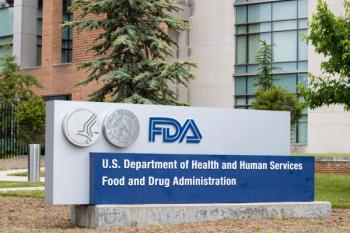
Calls for “Structural Policy Changes” for Biosimilars Market
The Biosimilars Forum, in partnership with Medicines for Europe, says the U.S. can look to European policy directives to advance the biosimilars market.
Amid continued misleading information regarding the safety and efficacy of biosimilar agents, many have called for increased education and awareness of these products and what they can offer the healthcare community. In response to that call,
Juliana Reed, president of the Biosimilars Forum and vice president at PEH Global Biosimilars at Pfizer, said the biosimilar market is at a critical juncture-and the United States needs new policies to help support biosimilar uptake. She hopes that this white paper will help the greater healthcare community understand the barriers currently in place that are thwarting biosimilar adoption, and how to best overcome them.
“Many of us have years of experience in Europe, where the biosimilar market is much more developed,” she says. “Policy makers in the U.S. need to get engaged and adopt the kind of policies that will drive biosimilar use and the cost savings they can bring.”
The report includes a series of key lessons learned from the European market-as well as how those lessons might be adapted to help foster growth in the U.S. While it would be easy to say that comparing the U.S. and European markets, due to single payer healthcare as well as a host of other factors, is like comparing apples to oranges, Reed said we can actually learn quite a bit from the active policy support observed across different European countries when it comes to biosimilar agents.
Related:
“You look at the United Kingdom and the National Health Service and see that they proactively set up policies for the adoption of biosimilars, working with different healthcare stakeholders to do that,” she said. “This is something that can be done here at both the federal and state levels. Because even with these drugs’ great safety record, it still took proactive government policy to get that higher adoption. That’s what we need to see here, too.”
The white paper issues American policy makers a direct call to action regarding structural market changes. They argue that there need to be improvements in commercialization, or a fair market that will allow lower costing biosimilars an opportunity to gain market share; authorization, or development and approvals through a strong biosimilars pipeline; and coordination, or a framework that can align incentives across different stakeholder groups to help improve uptake of these drugs. The paper goes on to offer guidance to government agencies about how to create the kind of policies that will support such market changes and, by extension, biosimilar adoption and access.
Reed argued that, after looking at 10 years of biosimilar success in Europe, it’s clear that increasing biosimilar uptake isn’t going to happen on its own. And with this call to action, she hopes that the government will get behind more proactive policies and legislation to support biosimilar agents at every step of the development and commercialization pathways.
“In order to get these cost savings, we need policy makers to engage,” she says. “It starts with educating the industry and other stakeholders about the potential of these agents and what policies might work. It’s up to us, as an industry, to help policy makers understand what a successful market can look like-and what it’s going to take to achieve similar access and cost savings here.”
Kayt Sukel is a science and health writer based outside Houston.
Newsletter
Get the latest industry news, event updates, and more from Managed healthcare Executive.























